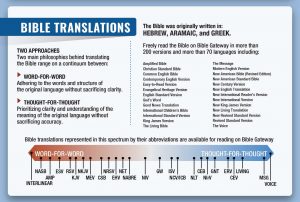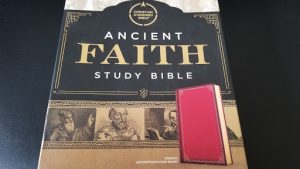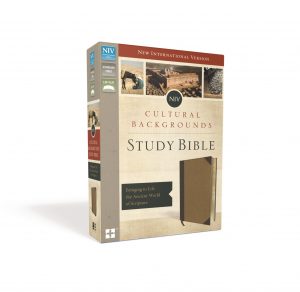
Shownotes
Welcome to Day 1509 of our Wisdom-Trek, and thank you for joining me.
This is Guthrie Chamberlain, Your Guide to Wisdom
Bible Study – Translation and Study Bibles – Meditation Monday
Wisdom - the final frontier to true knowledge. Welcome to Wisdom-Trek! Where our mission is to create a legacy of wisdom, to seek out discernment and insights, to boldly grow where few have chosen to grow before. Hello, my friend; I am Guthrie Chamberlain, your captain on our journey to increase Wisdom and Create a Living Legacy. Thank you for joining us today as we explore wisdom on our 2nd millennium of podcasts. This is Day 1509 of our Trek, and it is time for Meditation Monday. Taking time to relax, refocus, and reprioritize our lives is crucial in order to create a living legacy. For you, it may just be time alone for quiet reflection. You may utilize structured meditation practices. In my life, Meditation includes reading and reflecting on God’s Word and in prayer. It is a time to renew my mind, refocus on what is most important, and making sure that I am nurturing my soul, mind, and body. As you come along with me on our trek each Meditation Monday, it is my hope and prayer that you, too, will experience a time for reflection and renewing of your mind.
We are continuing our series this week on Meditation Monday as we focus on Mastering Bible Study through a series of brief insights from Hebrew Scholar, Dr. Michael S. Heiser. Our current insights are focusing on what the Bible is. Today let us meditate on:
Bible Study – Translations and Study Bibles
· Insight Thirty-Three: Learn Something About Philosophies of Bible Translation
Bible translation is both an art and a science. It’s not just a matter of knowing English equivalents to words in the original Hebrew, Aramaic, and Greek. If you are bilingual or have a friend who speaks another language, you know there’s more to understanding what is communicated in any language than using a dictionary.
The difficulty is easy to illustrate in English. Understanding what is meant by phrases liked ‘She copped a plea” or ‘He’s piling up yards” requires cultural knowledge—in these cases, the slang of crime dramas and the nuances of football. We could translate those phrases word-for-word into another language, but without the appropriate cultural intuition, they’d be meaningless.
Bible translators struggle with these sorts of problems frequently. There are also issues unique to the Bible that present difficulties. The doctrine of inspiration is one such complication. Since inspiration can be defined as “verbal,” where each word of the original compositions is ultimately the result of a process guided by Providence, should translation of those compositions take the form of a “word-for-word” rendering? If not, are words of God being lost?
This “word-for-word” approach to translation is called formal equivalence by translators. This translation philosophy aims to account for each word in the original language with an English word wherever that is possible. The result is typically a rigidly literal rendering that may sound awkward. Each word must be accounted for. Some Bible translations lean in this direction. Another approach is called “dynamic equivalence” or “functional equivalence.” This approach looks at the material to be translated and assesses what the original material meant to its original audience. Once that is discerned, the “meaning” is put into English using whatever words are best suited toward that end. There is no emphasis on accounting for each word of the original since meaning is the focus. Again, specific translations favor this approach.
Another approach is called “dynamic equivalence” or “functional equivalence.” This approach looks at the material to be translated and assesses what the original material meant to its original audience. Once that is discerned, the “meaning” is put into English using whatever words are best suited toward that end. There is no emphasis on accounting for each word of the original since meaning is the focus. Again, specific translations favor this approach.
Some translations fall in between. Still, others are paraphrased. Paraphrases start with an English translation and then reword the English. No actual translation work occurs.
I like to say the best Bible translation is the one you’ll read. It’s good to know the philosophy behind your translation. Using several translations that take different approaches is useful for Bible study.
· Insight Thirty-Four: Get to Know the Features of Your Study Bible
 A lot of people have study Bibles. They are annually one of the bestselling items in Christian bookstores. It’s a shame that most people who have one use only a fraction of what it offers. The problem isn’t illiteracy. It’s negligence.
A lot of people have study Bibles. They are annually one of the bestselling items in Christian bookstores. It’s a shame that most people who have one use only a fraction of what it offers. The problem isn’t illiteracy. It’s negligence.
The scholars and publishers who produce study Bibles put a great deal of thought into them. They are designed to facilitate Bible study and not just to be read like a novel or a newspaper. Study Bibles have a wide range of features to help people move beyond Bible reading.
All study Bibles include introductions to each book that discuss who wrote it and why. Knowing the circumstances that prompted the writing of the book is a crucial context for framing its contents.
Many study Bibles also include essays on essential topics in a book, challenging or controversial passages, or the book’s role in the bigger theological picture of the Bible. These sorts of essays orient readers to a book’s contribution to doctrine and biblical history.
Some study Bibles employ their own system of symbols to draw the reader’s attention to further information about words. Suppose you’re familiar with Strong’s numbers. In that case, you’ll know that some study Bibles feature numbering systems with a concordance and brief Hebrew and Greek dictionaries to help readers get into word study.
A good study Bible will also come with “extras” like explanations of biblical chronology, timelines, a glossary for weights and measures, a history of how we got the Bible, reading plans, extended maps, charts. These features are essential for Bible study, which should also include a well-conceived, detailed index. All these aids will be for naught unless you find them and use them. Don’t treat your study Bible like it’s a pew Bible, with nothing but the running English translation. It’s so much more. My point is this: don’t be afraid to seriously entertain an alternative textual reading in your Bible’s footnotes. You might be returning to the original reading.
Study this Book of Instruction continually. Meditate on it day and night so you will be sure to obey everything written in it. Only then will you prosper and succeed in all you do.
That is a wrap for today’s Meditation. Next week we will continue our trek on Meditation Monday as we take time to reflect on what is most important in creating our living legacy. On tomorrow’s trek, we will explore another wisdom quote. This 3-minute wisdom supplement will assist you in becoming healthy, wealthy, and wise each day. Thank you for joining me on this trek called life. Encourage your friends and family to join us and then come along tomorrow for another day of ‘Wisdom-Trek, Creating a Legacy.’  If you would like to listen to any of the past 1508 daily treks or read the daily Journal, they are available at Wisdom-Trek.com. I encourage you to subscribe to Wisdom-Trek on your favorite podcast player so that each day will be downloaded to you automatically.
If you would like to listen to any of the past 1508 daily treks or read the daily Journal, they are available at Wisdom-Trek.com. I encourage you to subscribe to Wisdom-Trek on your favorite podcast player so that each day will be downloaded to you automatically.
Thank you for allowing me to be your guide, mentor, and most importantly, I am your friend as I serve you through this Wisdom-Trek podcast and Journal.
As we take this Trek of life together, let us always:
- Live Abundantly (Fully)
- Love Unconditionally
- Listen Intentionally
- Learn Continuously
- Lend to others Generously
- Lead with Integrity
- Leave a Living Legacy Each Day
I am Guthrie Chamberlain….reminding you to ’Keep Moving Forward,’ ‘Enjoy your Journey,’ and ‘Create a Great Day…Everyday’! See you tomorrow!